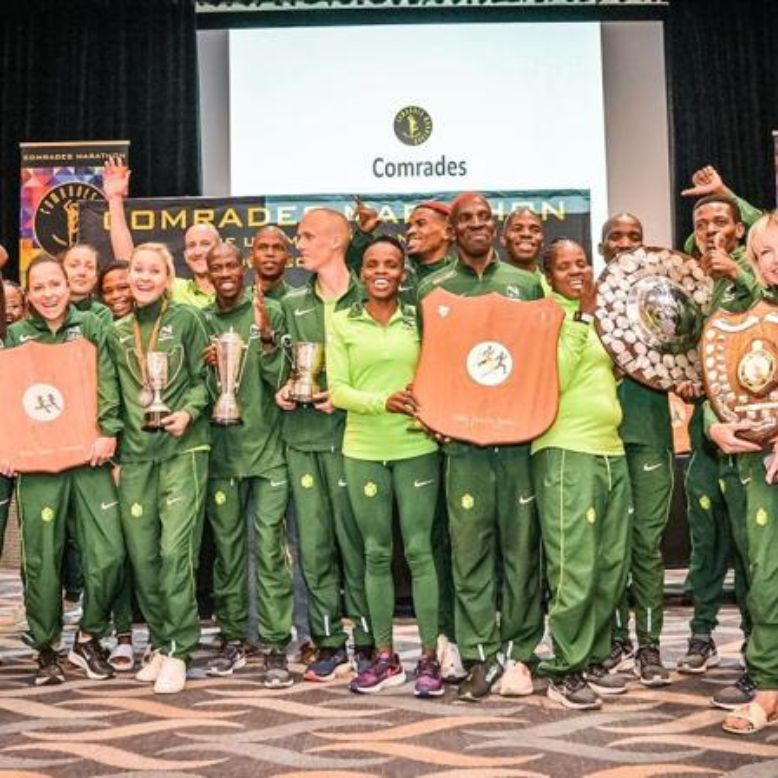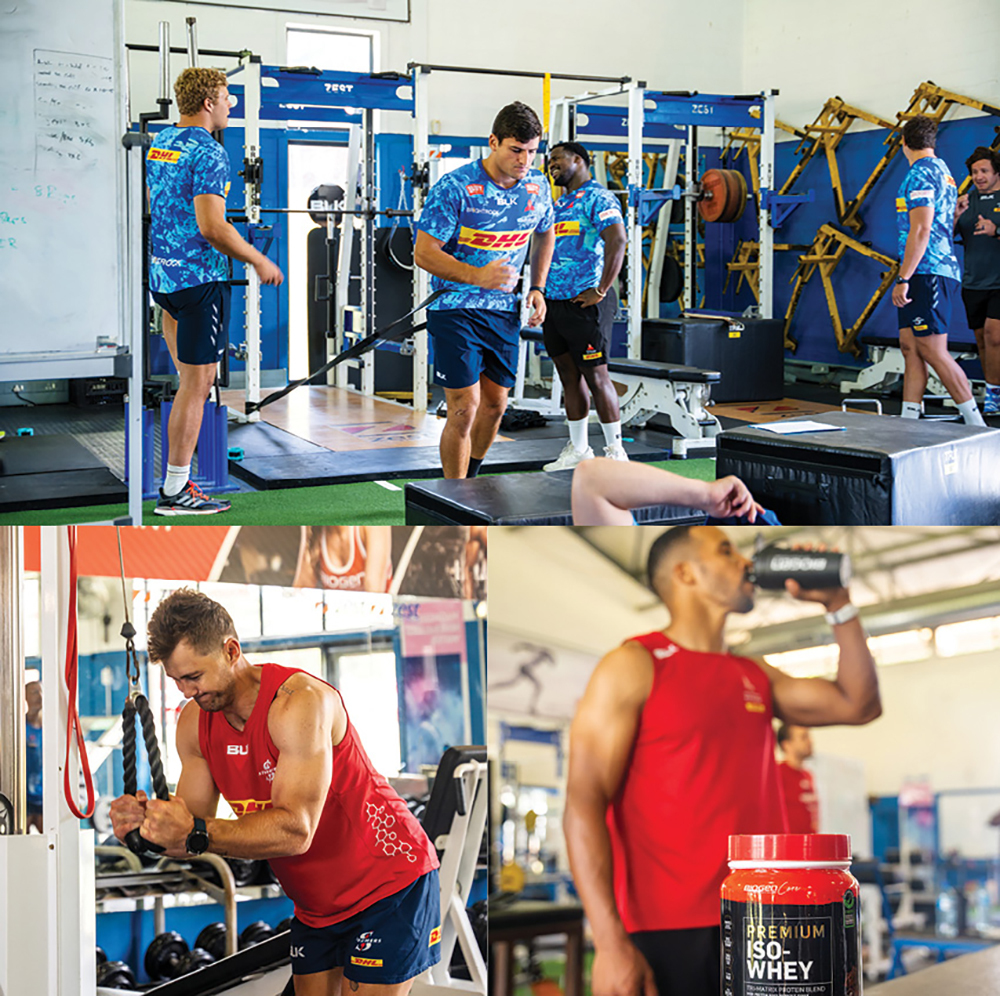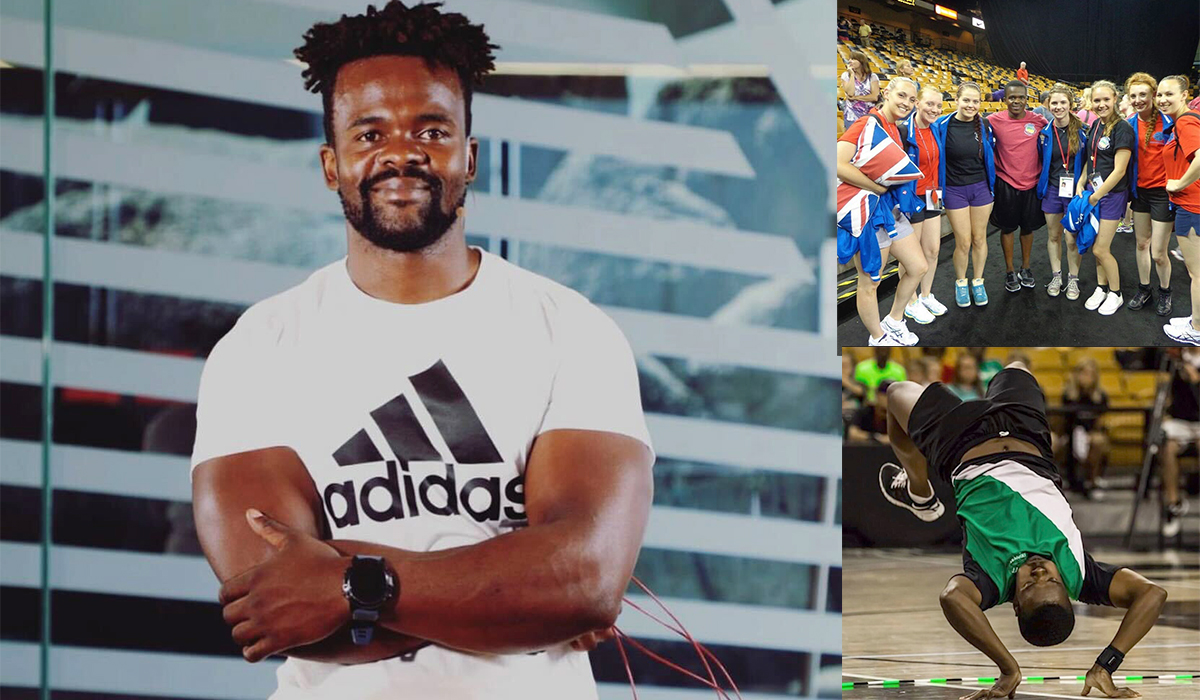
Skipping is an intense exercise that can have a transformative impact on your health and body, but few people would think that jumping rope could literally save your life.
Yet, that’s exactly how Biogen #TEAMRED ambassador Sibusiso ‘Sibu’ Sodo frames his journey to becoming one of the best jump rope athletes in the world.
Overcoming laziness
Sibu’s life took an unexpected turn when his family ran into financial difficulties.
“We lived a comfortable life in an affluent neighbourhood in Secunda, and I grew up with everything I needed. But my mom and I moved to Cape Town in 1998 when alcoholism got the better of my dad,” he explains.
After his family lost everything, Sibu and his mom moved to Gugulethu and stayed with family. When his mom found work as a bank teller, they moved to Khayelitsha.
“My mom worked hard to earn enough to give me the best education possible. While I am intelligent, I was lazy and almost failed a grade in primary school. In an effort to improve my results, I started to compete against the smartest kid in the class and managed to pass.”
Little did Sibu realise that this competitive mindset would serve him well in later life.
A major wake-up call
When he got to high school, Sibu tried to fit in, but encountered negative influences that often drag young men into a life of drugs and crime.
“I tried to fit in at high school by smoking, as everyone else was doing it. I was a sensitive boy and would never naturally do that, but I was influenced as everyone else was doing it.”
When he became the target of bullying by a gang at the school, Sibu withdrew and became extremely introverted.
“I went into my cocoon, and started falling in with the wrong crowd. Then I failed grade nine, which was a major wake-up call for me.”
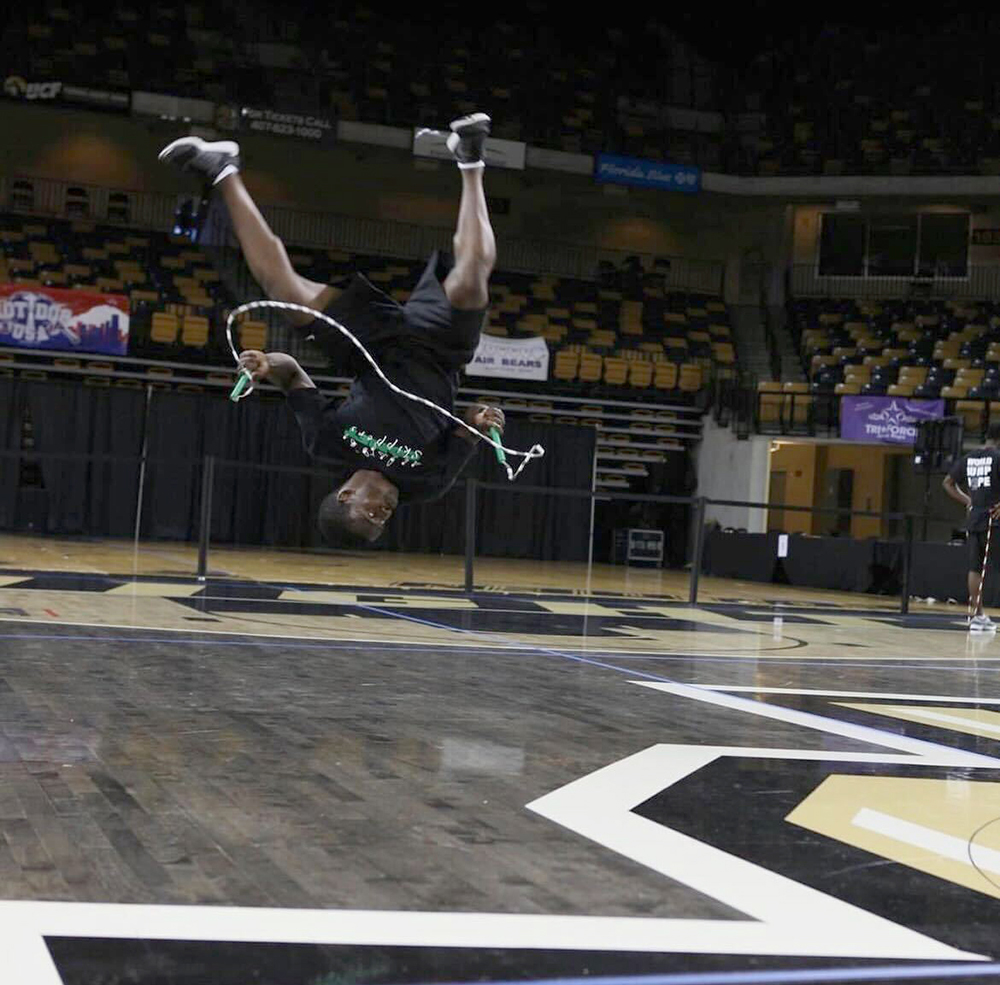
Driven to succeed
Sibu says he snapped out of it and started studying diligently. “I knew I was way smarter than that and didn’t want to fail again.” So he started applying himself and started hanging out with the right crowd.
“It was also at that stage when I saw a friend of mine, Sibusiso Mabele, interviewed on TV. He was also from Khayelitsha and had become the national jump rope champion.”
Mabele had just come back from an international competition, and the interviewer was asking him how he was able to travel the world.
“Sibusiso told the interviewer that as an athlete, he gets sponsored to travel around the world and compete. That made me think that I could also see the world if I became a top athlete.”
Finding his saving grace
That’s when Sibu starting rope jumping, which he credits as his saving grace.
“I got teased a lot at first as people in my community considered it an activity that little girls do – even my family told me to stop as it is not a manly sport – but competitive jump rope helped me escape the ghetto.”
Sibu immediately connected with skipping and began to really enjoy it. He improved rapidly, and in 2008, a major opportunity presented itself.
“South Africa was hosting the Jump Rope World Championship that year. By that stage I was good enough to make the team, but I squandered my chance because I was lazy. That missed opportunity was on me, so I resolved to never let another opportunity like that pass me by.”
Realising his potential
Sibu teamed up with Mabele, who agreed to coach him, and the duo worked hard to achieve his goals the following year.
“I eventually became the top jump rope athlete in South Africa after winning the Provincial champion and went to Nationals, where I won again. In the process, I qualified for the World Championships in 2012. I was on top of the world.”
Unfortunately for Sibu, the sporting federation that oversees jump rope was unable to financially support athletes in 2012 as there were no funds to send the athletes to the World Championships.
“I was determined to find a way to raise the money and didn’t give up. I sent hundreds of emails looking for sponsorship.”
While Sibu got a lot of ‘nos’ in response, one of his emails landed at the Sports Science Institute of South Africa with Gill Taylor, the institute’s Education, Training and Development Manager.
“Gill said they didn’t have money to assist me but that I should come through to see how the sports and exercise experts there could help me.”
Under their expert guidance, Sibu says he developed rapidly as an athlete as his strength and agility improved.
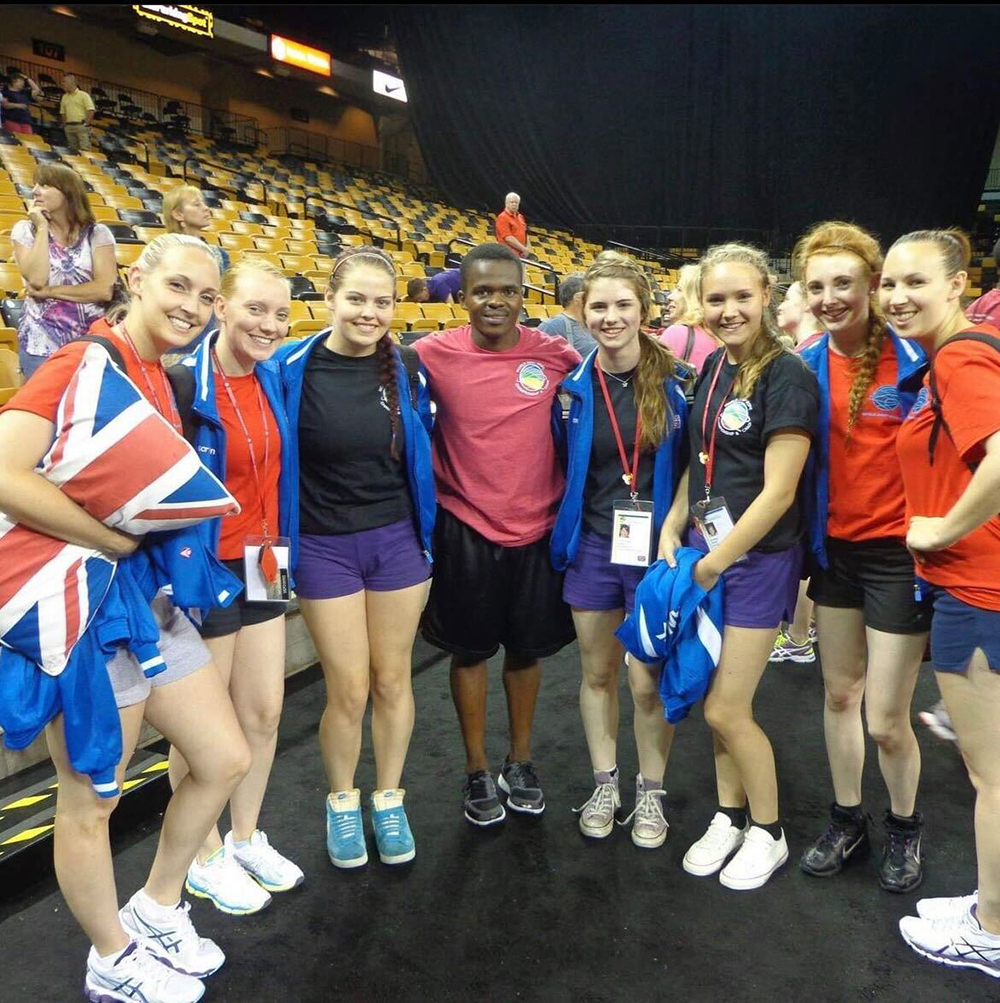
Steep learning curve
Sibu was also enrolled at an academy as he studied towards a Personal Training Diploma.
“I attended the first semester but didn’t have money to continue my studies. As I wasn’t able to pay the full tuition fee, I stayed at home, but a lecturer called me to ask where I was. I told him about my circumstances and he set up a meeting with an influential South Africa sportsperson.”
Sibu says his story resonated with the sportsperson. With his help, snd financial assistance from the Catholic Welfare Development programme that was funding jump rope in the Eastern Cape at the time, Sibu was able to compete at the World Championships.
Sibu trained harder than ever to make the most of his opportunity, but was gutted to only place 22nd.
“I was overwhelmed and wasn’t sure what to expect. I was the best in South Africa and thought I would do better, but the global standard was just insane. I gave everything I had, but it just wasn’t enough, and I felt bad for my sponsors.”
However, the experience showed Sibu the level of proficiency and skill he needed to compete with the best in the world.
“I had made friends with people in the jump rope community from the US via Facebook and was invited to travel there to compete.”
After the competition, his host family offered Sibu the opportunity to stay there for a year so he could train with some of the best jump rope coaches in the world and gain invaluable experience competing there.
Becoming one of the best in the world
“I trained really hard, and the experience made me the best athlete I could be. I competed at a few competitions in the US with another local athlete, who was also staying with the same host family in Rhode Island.”
After coming home and winning more local competitions and another National Championship, Sibu went back to the World Championships as a far better athlete.
“I was really inspired and knew my potential. All my training and competing with the best in the world paid off, and I placed third. I couldn’t believe it, and my sponsors were over the moon.”
Having achieved his ambitions, Sibu returned to South Africa and went back to SSISA to develop further as an athlete. He also placed second at the jump rope event at the Arnold Classic.
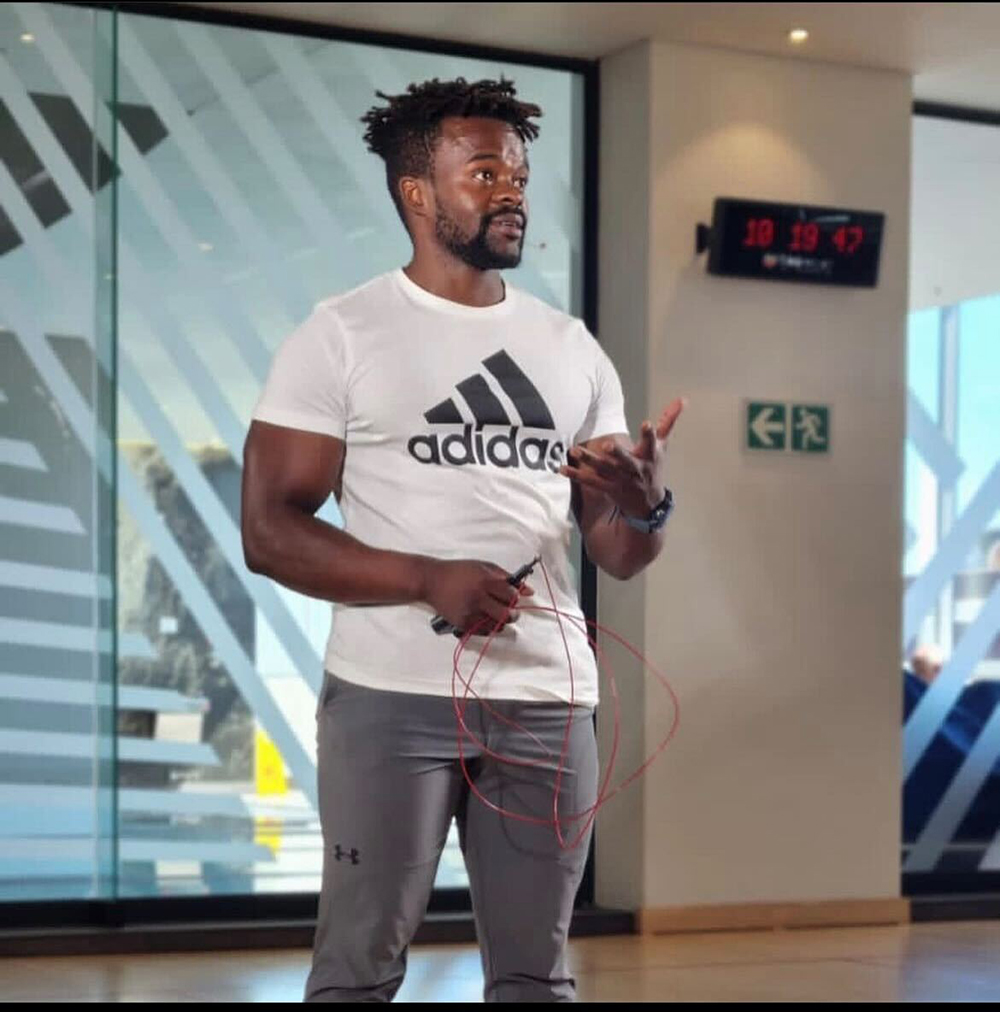
Sibu pays it forward
“I also finished my studies, became a World Jumprope Level 1 coach and started working as personal trainer.”
He also worked for an NGO for a while, where he shared his experience and coached kids.
“I was honoured to work with many talented young kids, many of whom possessed more talent and potential than I ever had. A few of them ended up going to an Open Championship in China, where they did extremely well for South Africa.”
After the NGO ran out of funding, Sibu went back to personal training and got his CrossFit Level 1 certification.
“I had started CrossFit to improve my functional strength, fitness and agility for skipping, and I really enjoyed it. After qualifying as a coach, I started working at Cape CrossFit Century City – now known as CrossFir Juggernaut, before moving to Black River CrossFit, which now operates as CrossFit Impi BRCF.”
He also competed in the 2022 CrossFit Open and is looking forward to the 2023 season.
How Sibu trains and eats
A typical day of training for Sibu starts with some fasted cardio – mainly endurance-based jump rope, followed by strength training at midday or mid-afternoon, and a skills-based CrossFit session in the evening to master the more technical exercises.
He trains using a five-day split, with four days on and one day off. He also includes bodybuilding and other forms of training in his routine based on his goals.
Sibu remains active on his rest days, preferring to go hiking in the mountains around Cape Town with one of his clients.




